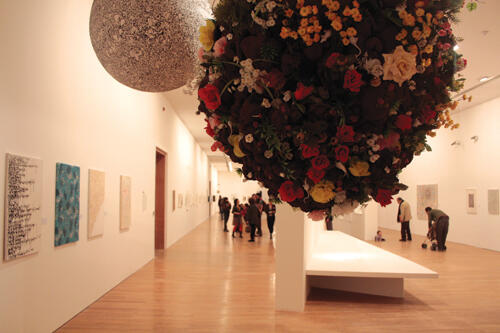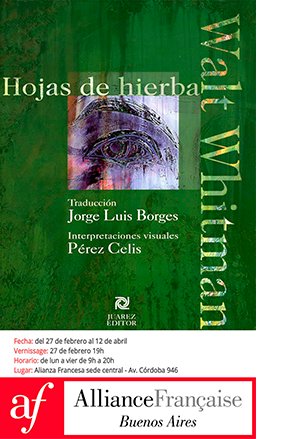León Ferrari
Museo de Arte del Banco de la República Bogota
The Museo de Arte del Banco de la República is presenting a retrospective exhibition of the work of León Ferrari. With a complex curatorship by the Fundación Augusto and León Ferrari, the show is divided into several thematic axes, among which Art and Power, Prisms and Rectangles, and Brazil stand out. An impressive selection of works, if one bears in mind that it includes works ranging from 1954 to the present, and considering the aesthetic versatility of this Argentine artist.

Having studied engineering, Ferrari took advantage of his training to generate, in a clever and intuitive way, new discursive channels that have rendered him a permanently polemical figure. His innovative art, both in terms of forms and meaning, addresses issues such as religion, violence and sex. His heterogeneous production includes wire sculptures, drawings, objects, collages, prints, photographs and videos for which he uses a wide variety of materials: metals, dummies, birds or animal feces.
Particularly noteworthy is the presence in the show of the works Western-Christian Civilization, in which an American FH 107 war plane with a figure of Christ tied to it, symbolizes the responsibility of the United States in the Viet Nam War; and Letter to a General (1963), in which “in view of the incapacity of the written language to generate reactions, he decides to materialize the idea in a letter which has no meaning and which presents a distorted calligraphy,” as the curatorial text indicates.
A winner in 2007 of the prestigious Golden Lion Award granted by the Venice Biennial, his most outstanding trait is the ethical stance he maintains with regard to art and its mission: “I ignore the value of those pieces. The only thing I ask of art is that it helps me to say what I think as clearly as possible, to invent the visual and critical signs that will allow me to condemn the barbarianism of the West.; someone might prove to me that what I do is not art; then I would have no problem, I would not take another path, I would simply change the name of what I do; I would cross out art and call it politics, or whatever you like.” Such the thesis presented in a text addressed to the jury that prevented him from presenting one of his works at the Di Tella National Award in Argentina.
-
 Exhibition at the Museo de Arte del Banco de la República. Bogotá – Colombia. Exposición en el Museo de Arte del Banco de la República. Bogotá – Colombia
Exhibition at the Museo de Arte del Banco de la República. Bogotá – Colombia. Exposición en el Museo de Arte del Banco de la República. Bogotá – Colombia




